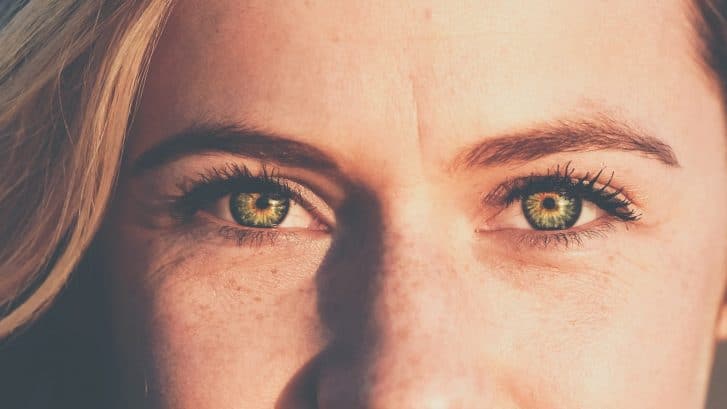Why You Could Be Causing Premature Aging
Ah, aging. You either embrace it or hate it. Unfortunately, there doesn’t seem to be much in-between.
But one thing is for sure. Plastic surgeons are frequently asked about the best way to reverse the aging process. Is it through fillers? Botox? Facial contouring?
One way to reverse or slow the aging process is to look at how you live your life. Through your daily activities, you may be causing your own premature aging.
Let’s look at some ways you could be causing premature aging and what you can do to combat it.
The Culprits of Premature Aging
Exposure to the Sun
According to the Skin Cancer Foundation, sun exposure is “the number one cause of aging.” If you’re of a certain age, this may make your skin crawl (in addition to aging). For those of us who laid out in the sun with nothing but baby oil back in the 1970s and 1980s, we may be seeing those carefree summer activities now reflected on our faces with premature wrinkling and sagging.
Ultraviolet (UV) radiation, part of the sun’s rays, “speeds the natural aging process [and ] is the primary cause of early wrinkling,” according to Mayo Clinic. UV rays exposure “breaks down your skin’s connective tissue—collagen and elastin fibers, which lie in the deeper layer of skin.” When your connective tissue breaks down and weakens, your skin loses its flexibility and strength, causing it to wrinkle and sag.
If you learned anything from those days of laying out with baby oil, it’s to wear sunscreen—anytime you’re in the sun for an extended period of time. So don’t forget protection for your skin when you’re outside gardening, at a ball game, taking a long walk, or, of course, at the beach or pool. It will do wonders for your skin.
Smoking
Smoking, another culprit, can prematurely age your skin as well. According to the American Osteopathic College of Dermatology, smoking is directly linked to “premature aging of the skin, increased amount[s] of infections, and delayed wound healing.” And if that weren’t enough, smokers are more apt to get inflammatory skin diseases than their non-smoking counterparts.
And the Mayo Clinic says that smoking can accelerate the aging process, giving you “crow’s-feet, pronounced lines between the eyebrows, uneven skin complexion, a grayish tone on lighter skin, deep creases and puffiness below the eyes, wrinkles around the mouth, and thinner lips.”
The best course of action is to stop smoking, often easier said than done. However, if you can back down on smoking, including vaping (and eventually quit), your skin will thank you.
Lack of Sleep
Quality sleep plays an integral role in our health. It helps our bodies recover and heal, letting us wake up well-rested, ready to take on what the day brings. However, for many of us, quality sleep is as elusive as a rainbow-colored unicorn.
According to the Sleep Foundation, over one in three people sleep less than seven hours a night. In addition, close to half of all Americans “say they feel sleepy during the day between three and seven days per week.” Between 30 percent and 48 percent of older adults have insomnia.
If you’re not sleeping enough hours or not sleeping soundly, then your body’s largest organ—your skin—will show it. Without good sleep, your skin can’t renew. Taking time to figure out what helps you sleep better can help slow signs of aging. Is it your mattress? A snoring spouse? Toddlers jumping in bed with you? Think about how you can reduce distractions, allowing you to drift off – and stay asleep – in dreamland for at least seven hours nightly.
Stress
Like smoking, stress directly impacts our physical and mental health. And our skin is not exempt. As reported by the Business Insider, “[h]igh amounts of cortisol – the stress hormone – can break down the skin’s collagen and elastin, and form wrinkles.”
Citing to two different scientific studies published in the National Institute of Health’s journal, Business Insider further reports that “chronic stress can have negative effects on skin aging and cause wrinkles to form . . . because stress causes inflammation and impairs the body’s ability to repair itself.” Further, Business Insider cites that “[r]esearch has found that skin aging is often accompanied with a two to four times increase in plasma levels of inflammation.”
Learning how to combat stress seems to be a never-ending task. However, prioritizing yourself and your mental and physical health, can do wonders for your skin – as well as the rest of your body.
Although this list of culprits is a good start, it’s not comprehensive. We didn’t get a chance to talk about pollution and toxins, poor diet choices, and making repeated facial expressions (yep, that one). All contribute to premature aging as well. If you’d like to learn more ways about combatting premature aging, call Dr. Binder, an esteemed, board-certified plastic surgeon in Beverly Hills.

